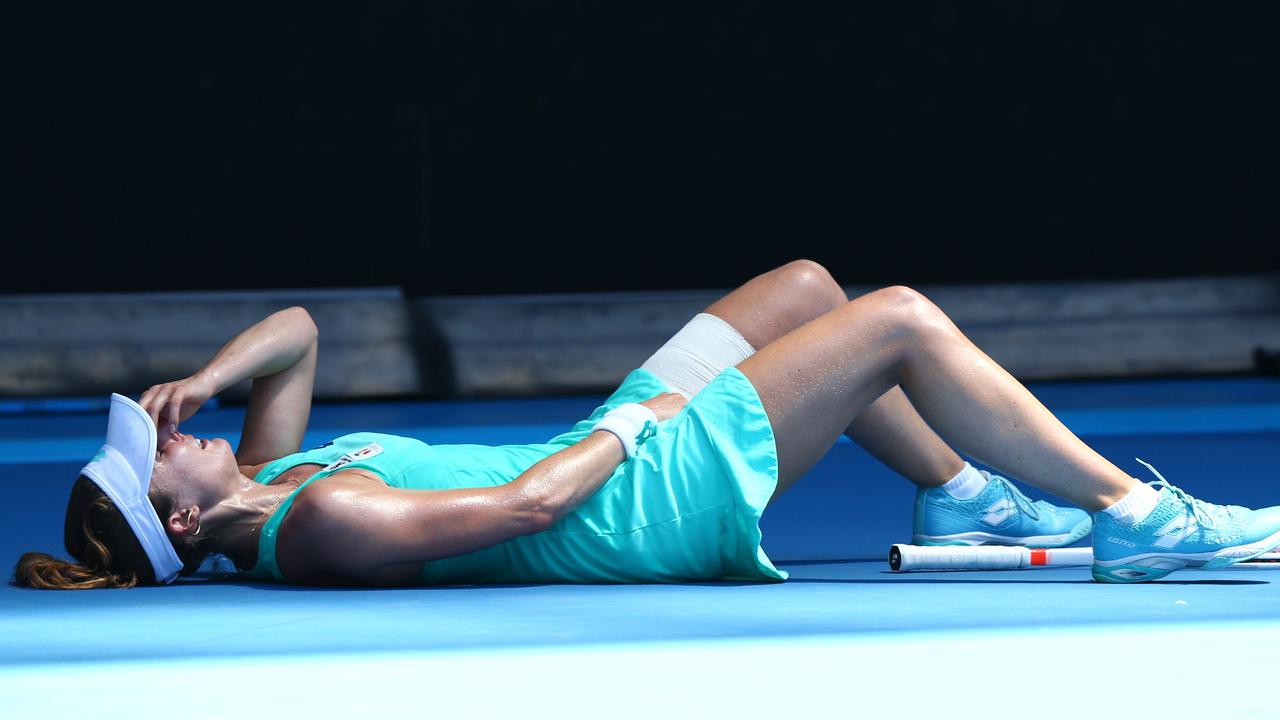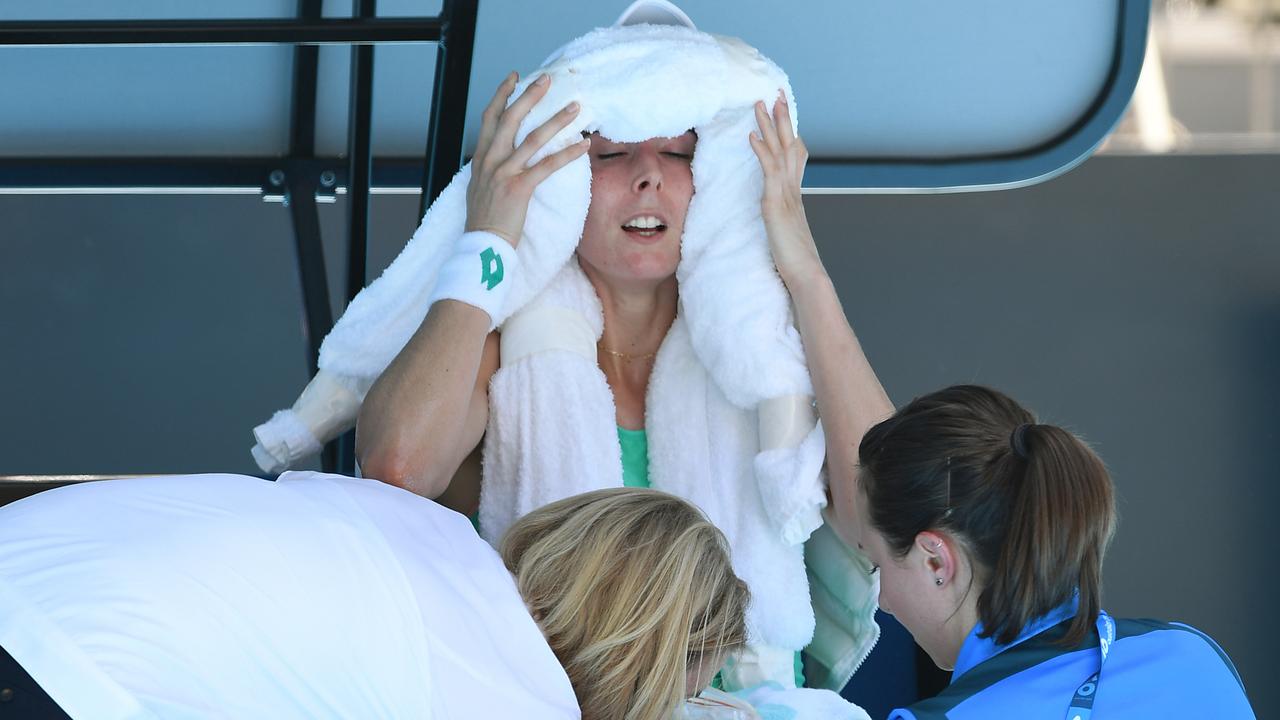Climate scientists call for Australian Open to be moved
Climate scientists say it may be too hot soon to hold the Australian Open in January, with calls to move it to a cooler month.
Climate scientists have proposed moving the Australian Open to a cooler month, saying that the tournament could become too dangerous to play in the peak of summer.
A report from the Monash Climate Change Communication Research Hub, released to coincide with the beginning of this year’s competition, has said that the series of measures implemented by Tennis Australia in 2019 is not enough.
A “heat stress scale” – mandating responses such as cooling players with ice vests and baths up to suspending matches depending on local conditions – has been put in place by the organisation to deal with the impact of hot weather on players, officials and spectators.
But an Australian Conservation Foundation-commissioned report suggests that more dramatic action will be required as the climate continues to change.
RELATED: Barty Party endures ‘terrible scare’

“What we found from this research is that climate change and extreme heat are already having an impact on the Australian Open and without effective climate mitigation (those impacts) are likely to increase moving forward,” the report’s co-author Stephanie Hall told ABC.
Australian Open tournament director Craig Tiley said that “as the biggest sporting event in the world each January, the Australian Open is in a unique position to help drive awareness of the need for increased sustainability”.
The report suggests a number of ways for Tennis Australia to adapt to the changing conditions – from avoiding scheduling matches during the hottest part of the day to moving the event to March or November, when the weather is generally cooler.
“We recognise that there are considerable economic and logistical implications with some of these suggestions, however, this is the unfortunate nature of playing outdoor sport in a changing climate,” Ms Hall said.


The analysis showed that heat stress in recent years has been particularly severe, leading to greater impacts on play.
In 2014, four days of the tournament exceeded 41C, over 1000 attendees were treated for heat illnesses, and nine players were forced to withdraw. And in 2018, court surface temperatures reached 69C.
“Looking ahead, high resolution climate models show that under ‘business as usual’ emissions scenarios, Januarys in Melbourne will heat up, increasing the likelihood of match disruptions,” the report said.
Average maximum temperatures are projected to increase significantly over the next 40 to 60 years, as are the number of days at 35C or above.
“There projections suggest that continuing to play the Australian Open in its current format will expose competitors and fans to unprecedented levels of extreme heat,” it said.
Tennis players present surprising symptoms as they progress toward heat stroke, the report said, and these can be “life-threatening”.

It’s not just the heat that’s causing problems.
Play was halted at the Kooyong Classic qualification matches – and Slovenian player Dalila Jakupovic was forced to withdraw after she suffered a coughing fit – because of smoke from Victoria’s unprecedented bushfires, which have also been linked to climate change.
The report said that the disastrous bushfire season has “brought into sharp focus” the impacts of smoke on human health, saying that these only intensify when playing sport.
“An athlete’s respiratory rate and volume increases when engaging in high intensity sports, which increases the amount of airway exposure to pollutants,” the report said.
“This can negatively impact performance and lead to long term health effects including decreased lung function.”
Other players reported requiring asthma medication, despite never suffering the condition previously.
While the air quality in Melbourne was rated as good on Monday, the first day of the tournament, this could change over the coming weeks if wind again blows smoke over from the bushfires that continue to burn in East Gippsland and the state’s northeast regions.



